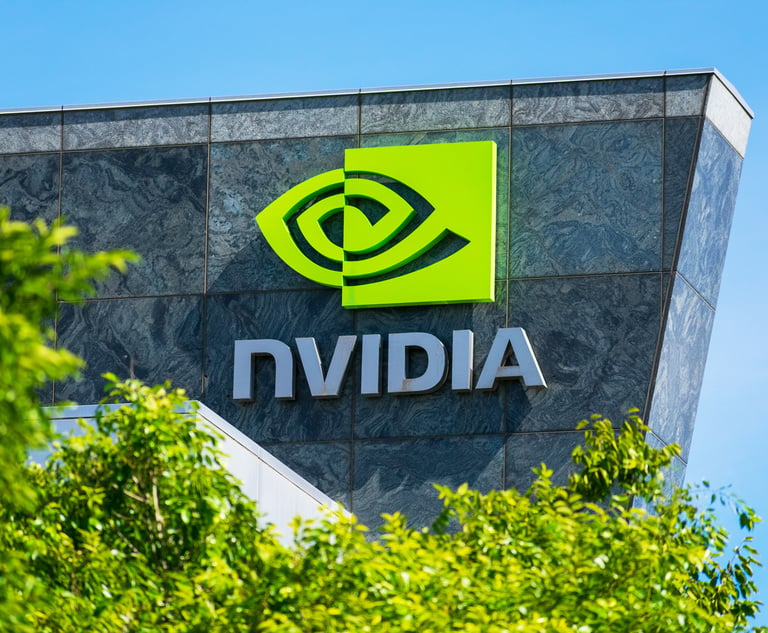Accepting That LinkedIn Invitation May Be a Violation of a Nonsolicitation Agreement
Social media sites like Facebook and LinkedIn are increasingly being used today for professional purposes. Those purposes include maintaining professional networks and promoting certain brands and companies.
April 16, 2018 at 10:35 AM
5 minute read
 Hugo Alvarez, shareholder with Becker & Poliakoff in Coral Gables, Florida.
Hugo Alvarez, shareholder with Becker & Poliakoff in Coral Gables, Florida.
Social media sites like Facebook and LinkedIn are increasingly being used today for professional purposes. Those purposes include maintaining professional networks and promoting certain brands and companies. On the other hand, an individual's social media activity may serve as the basis for a claim involving the breach of a nonsolicitation agreement.
A nonsolicitation agreement is a legal agreement wherein the employee agrees to restrain from soliciting the company's clients or customers once the employment relationship between that employee and employer is terminated. That agreement is intended to protect the employer from unfair competition from the employee once the employee leaves.
However, the use of social media platforms like Facebook and LinkedIn begs the question as to whether a former employee's social media posts are a violation of the nonsolicitation agreement. In illustrating how problematic this issue may be for both the former employee and employer, two cases reached very different results in addressing that question.
In Bankers Life & Casualty v. American Senior Benefits, (Ill. App. Ct. 2017), the court concluded that certain social media posts did not constitute a violation of the employee's nonsolicitation agreement. In that case, Greg Geliuni had signed a nonsolicitation agreement with his employer, Bankers Life. He later left Bankers Life and went to work for one of its competitors, American Senior Benefits. After Geliuni started working for American Senior Benefits, he sent out a LinkedIn invite to several of his former colleagues at Bankers Life inviting them to join his LinkedIn network. Anyone that accepted that invitation could then see a job posting that Geliuni had posted for his new employer on his LinkedIn profile.
Bankers Life sued Geliuni and American Senior Benefits alleging that Geliuni's LinkedIn invite to his former colleagues violated the terms of his nonsolicitation agreement with Bankers Life. Bankers Life claimed that anyone that actually accepted the LinkedIn invitation could then see the job posting to work for Bankers Life's competing firm.
The court was not persuaded by Bankers Life's arguments. It concluded that Geliuni's “generic” email invitation “did not contain any discussion of Banker's Life, no mention of ASB, no suggestion that the recipient viewed a job description on Geliuni's profile page, and no solicitation to leave their place of employment and join American Senior Benefits, LLC.”
However, the court in Mobile Mini v. Vevea (D. Minn. July 25, 2017), reached a different result when confronted with a former's employee's targeted LinkedIn social media posts. In that case, Liz Vevea left her job with Mobile Mini and went to work with one of Mobile Mini's competitors. Vevea then posted several messages on LinkedIn inviting her social media network to contact her about a “quote” and letting her social media audience know that her new company was the “best” to work with and inviting her network to “connect.”
In concluding that Vevea had violated the terms of her nonsoliciation agreement, the court noted that her social media posts were “not mere status updates.” Rather, the court concluded that Vevea's social media posts were “blatant sales pitches.” The court went on to note that instead of “merely announcing a job change, the language of the posts here demonstrates that Vevea's purpose was to entice members of Vevea's network to call her for the purpose of making sales in her new position.”
As these two cases illustrate, merely accepting or sending a friend request on Facebook or updating a LinkedIn profile, without more, will generally not violate a nonsolicitation agreement. Indeed, courts have concluded that status updates sent over social media are generally not a violation of nonsolicitation agreements. The rationale being that social media posts are now embedded in our daily social fabric and merely announcing a new job on social media is a common occurrence in our society today.
However, social media posts aimed at a specific population or focused on former colleagues or customers, such as what occurred in Mobile Mini, may be actionable. Former employees bound by nonsolicitation agreements should be very careful when using social media platforms especially if they intend to engage in promotional activity such as what Vevea did in the Mobile Mini case. As that case illustrates, anything more than a mere status update or generic invitation to join a social media group may prove to be actionable and a violation of the nonsolicitation agreement.
Therefore, employees who signed a nonsolicitation agreement should understand the scope and reach of that agreement before engaging their social media network. Because failing to understand the scope of that agreement could prove to be very costly if the employee's former employer decides to sue the employee to enforce the nonsolicitation agreement.
Moreover, employers today should revisit their nonsolicitation agreements in an effort to address social media use post-employment. Employers may be in a better position of establishing a breach of the nonsolicitation agreement by specifically addressing the use of social media in the agreement. However, even if the nonsolicitation agreement is silent on the use of social media post-employment, employers should nonetheless remind employees to refrain from engaging in conduct that could constitute a violation of the nonsolicitation agreement by way of overly aggressive social media posts.
Hugo V. Alvarez is a shareholder with the business litigation practice group at Becker & Poliakoff in Coral Gables, Florida. Contact him at [email protected].
This content has been archived. It is available through our partners, LexisNexis® and Bloomberg Law.
To view this content, please continue to their sites.
Not a Lexis Subscriber?
Subscribe Now
Not a Bloomberg Law Subscriber?
Subscribe Now
NOT FOR REPRINT
© 2025 ALM Global, LLC, All Rights Reserved. Request academic re-use from www.copyright.com. All other uses, submit a request to [email protected]. For more information visit Asset & Logo Licensing.
You Might Like
View All

Labaton’s Eric Belfi on Running Case Investigation, Analysis and Delaware Presence

Chancery Stays Action Pending Resolution of a Motion to Dismiss in a First-Filed Action to Which the Defendant Is Not a Party
5 minute read
Chancery Court Exercises Discretion in Setting Bond in a Case Involving Share Transfer Restriction
6 minute readTrending Stories
- 1Cornell Claims AT&T, Verizon Violated the University's Wi-Fi Patents
- 2OCR Issues 'Dear Colleagues' Letter Regarding AI in Medicine
- 3Corporate Litigator Joins BakerHostetler From Fish & Richardson
- 4E-Discovery Provider Casepoint Merges With Government Software Company OPEXUS
- 5How I Made Partner: 'Focus on Being the Best Advocate for Clients,' Says Lauren Reichardt of Cooley
Who Got The Work
J. Brugh Lower of Gibbons has entered an appearance for industrial equipment supplier Devco Corporation in a pending trademark infringement lawsuit. The suit, accusing the defendant of selling knock-off Graco products, was filed Dec. 18 in New Jersey District Court by Rivkin Radler on behalf of Graco Inc. and Graco Minnesota. The case, assigned to U.S. District Judge Zahid N. Quraishi, is 3:24-cv-11294, Graco Inc. et al v. Devco Corporation.
Who Got The Work
Rebecca Maller-Stein and Kent A. Yalowitz of Arnold & Porter Kaye Scholer have entered their appearances for Hanaco Venture Capital and its executives, Lior Prosor and David Frankel, in a pending securities lawsuit. The action, filed on Dec. 24 in New York Southern District Court by Zell, Aron & Co. on behalf of Goldeneye Advisors, accuses the defendants of negligently and fraudulently managing the plaintiff's $1 million investment. The case, assigned to U.S. District Judge Vernon S. Broderick, is 1:24-cv-09918, Goldeneye Advisors, LLC v. Hanaco Venture Capital, Ltd. et al.
Who Got The Work
Attorneys from A&O Shearman has stepped in as defense counsel for Toronto-Dominion Bank and other defendants in a pending securities class action. The suit, filed Dec. 11 in New York Southern District Court by Bleichmar Fonti & Auld, accuses the defendants of concealing the bank's 'pervasive' deficiencies in regards to its compliance with the Bank Secrecy Act and the quality of its anti-money laundering controls. The case, assigned to U.S. District Judge Arun Subramanian, is 1:24-cv-09445, Gonzalez v. The Toronto-Dominion Bank et al.
Who Got The Work
Crown Castle International, a Pennsylvania company providing shared communications infrastructure, has turned to Luke D. Wolf of Gordon Rees Scully Mansukhani to fend off a pending breach-of-contract lawsuit. The court action, filed Nov. 25 in Michigan Eastern District Court by Hooper Hathaway PC on behalf of The Town Residences LLC, accuses Crown Castle of failing to transfer approximately $30,000 in utility payments from T-Mobile in breach of a roof-top lease and assignment agreement. The case, assigned to U.S. District Judge Susan K. Declercq, is 2:24-cv-13131, The Town Residences LLC v. T-Mobile US, Inc. et al.
Who Got The Work
Wilfred P. Coronato and Daniel M. Schwartz of McCarter & English have stepped in as defense counsel to Electrolux Home Products Inc. in a pending product liability lawsuit. The court action, filed Nov. 26 in New York Eastern District Court by Poulos Lopiccolo PC and Nagel Rice LLP on behalf of David Stern, alleges that the defendant's refrigerators’ drawers and shelving repeatedly break and fall apart within months after purchase. The case, assigned to U.S. District Judge Joan M. Azrack, is 2:24-cv-08204, Stern v. Electrolux Home Products, Inc.
Featured Firms
Law Offices of Gary Martin Hays & Associates, P.C.
(470) 294-1674
Law Offices of Mark E. Salomone
(857) 444-6468
Smith & Hassler
(713) 739-1250






